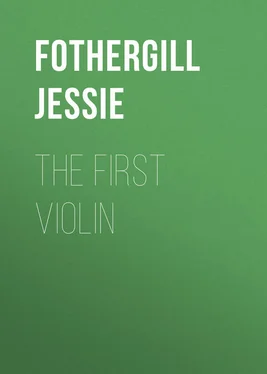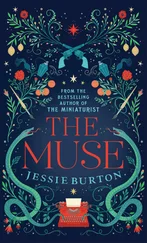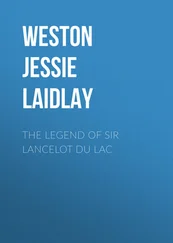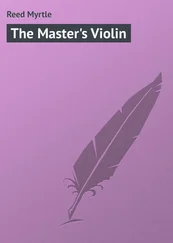Jessie Fothergill - The First Violin
Здесь есть возможность читать онлайн «Jessie Fothergill - The First Violin» — ознакомительный отрывок электронной книги совершенно бесплатно, а после прочтения отрывка купить полную версию. В некоторых случаях можно слушать аудио, скачать через торрент в формате fb2 и присутствует краткое содержание. Жанр: foreign_antique, foreign_prose, foreign_sf, на английском языке. Описание произведения, (предисловие) а так же отзывы посетителей доступны на портале библиотеки ЛибКат.
- Название:The First Violin
- Автор:
- Жанр:
- Год:неизвестен
- ISBN:нет данных
- Рейтинг книги:4 / 5. Голосов: 1
-
Избранное:Добавить в избранное
- Отзывы:
-
Ваша оценка:
- 80
- 1
- 2
- 3
- 4
- 5
The First Violin: краткое содержание, описание и аннотация
Предлагаем к чтению аннотацию, описание, краткое содержание или предисловие (зависит от того, что написал сам автор книги «The First Violin»). Если вы не нашли необходимую информацию о книге — напишите в комментариях, мы постараемся отыскать её.
The First Violin — читать онлайн ознакомительный отрывок
Ниже представлен текст книги, разбитый по страницам. Система сохранения места последней прочитанной страницы, позволяет с удобством читать онлайн бесплатно книгу «The First Violin», без необходимости каждый раз заново искать на чём Вы остановились. Поставьте закладку, и сможете в любой момент перейти на страницу, на которой закончили чтение.
Интервал:
Закладка:
We went along a street and came to a hotel, a large building, into which my conductor walked, spoke to a waiter, and we were shown into the restaurant, full of round tables, and containing some half dozen parties of people. I followed with stony resignation. It was the severest trial of all, this coming to a hotel alone with a gentleman in broad daylight. I caught sight of a reflection in a mirror of a tall, pale girl, with heavy, tumbled auburn hair, a brown hat which suited her, and a severely simple traveling-dress. I did not realize until I had gone past that it was my own reflection which I had seen.
“Suppose we sit here,” said he, going to a table in a comparatively secluded window recess, partially overhung with curtains.
“How very kind and considerate of him!” thought I.
“Would you rather have wine or coffee, Fräulein?”
Pulled up from the impulse to satisfy my really keen hunger by the recollection of my “lack of gold,” I answered hastily.
“Nothing, thank you – really nothing.”
“ O doch! You must have something,” said he, smiling. “I will order something. Don’t trouble about it.”
“Don’t order anything for me,” said I, my cheeks burning. “I shall not eat anything.”
“If you do not eat, you will be ill. Remember, we do not get to Elberthal before eight,” said he. “Is it perhaps disagreeable to you to eat in the saal? If you like we can have a private room.”
“It is not that at all,” I replied; and seeing that he looked surprised, I blurted out the truth. “I have no money. I gave my purse to Miss Hallam’s maid to keep and she has taken it with her.”
With a laugh, in which, infectious though it was, I was too wretched to join:
“Is that all? Kellner!” cried he.
An obsequious waiter came up, smiled sweetly and meaningly at us, received some orders from my companion, and disappeared.
He seated himself beside me at the little round table.
“He will bring something at once,” said he, smiling.
I sat still. I was not happy, and yet I could not feel all the unhappiness which I considered appropriate to the circumstances.
My companion took up a “Kölnische Zeitung,” and glanced over the advertisements, while I looked a little stealthily at him, and for the first time took in more exactly what he was like, and grew more puzzled with him each moment. As he leaned upon the table, one slight, long, brown hand propping his head, and half lost in the thick, fine brown hair which waved in large, ample waves over his head, there was an indescribable grace, ease, and negligent beauty in the attitude. Move as he would, let him assume any possible or impossible attitude, there was still in the same grace, half careless, yet very dignified in the position he took.
All his lines were lines of beauty, but beauty which had power and much masculine strength; nowhere did it degenerate into flaccidity, nowhere lose strength in grace. His hair was long, and I wondered at it. My small experience in our delightful home and village circle had not acquainted me with that flowing style; the young men of my acquaintance cropped their hair close to the scalp, and called it the modern style of hair-dressing. It had always looked to me more like hair-undressing. This hair fell in a heavy wave over his forehead, and he had the habit, common to people whose hair does so, of lifting his head suddenly and shaking back the offending lock. His forehead was broad, open, pleasant, yet grave. Eyes, as I had seen, very dark, and with lashes and brows which enhanced the contrast to a complexion at once fair and pale. A light mustache, curving almost straight across the face, gave a smiling expression to lips which were otherwise grave, calm, almost sad. In fact, looking nearer, I thought he did look sad; and though when he looked at me his eyes were so piercing, yet in repose they had a certain distant, abstracted expression not far removed from absolute mournfulness. Broad-shouldered, long-armed, with a physique in every respect splendid, he was yet very distinctly removed from the mere handsome animal which I believe enjoys a distinguished popularity in the latter-day romance.
Now, as his eyes were cast upon the paper, I perceived lines upon his forehead, signs about the mouth and eyes telling of a firm, not to say imperious, disposition; a certain curve of the lips, and of the full, yet delicate nostril, told of pride both strong and high. He was older than I had thought, his face sparer; there were certain hollows in the cheeks, two lines between the eyebrows, a sharpness, or rather somewhat worn appearance of the features, which told of a mental life, keen and consuming. Altogether, an older, more intellectual, more imposing face than I had at first thought; less that of a young and handsome man, more that of a thinker and student. Lastly, a cool ease, deliberation, and leisureliness about all he said and did, hinted at his being a person in authority, accustomed to give orders and see them obeyed without question. I decided that he was, in our graceful home phrase, “master in his own house.”
His clothing was unremarkable – gray summer clothes, such as any gentleman or any shop-keeper might wear; only in scanning him no thought of shop-keeper came into my mind. His cap lay upon the table beside us, one of the little gray Studentenmutzen with which Elberthal soon made me familiar, but which struck me then as odd and outlandish. I grew every moment more interested in my scrutiny of this, to me, fascinating and remarkable face, and had forgotten to try to look as if I were not looking, when he looked up suddenly, without warning, with those bright, formidable eyes, which had already made me feel somewhat shy as I caught them fixed upon me.
“ Nun , have you decided?” he asked, with a humorous look in his eyes, which he was too polite to allow to develop itself into a smile.
“I – oh, I beg your pardon!”
“You do not want to,” he answered, in imperfect idiom. “But have you decided?”
“Decided what?”
“Whether I am to be trusted?”
“I have not been thinking about that,” I said, uncomfortably, when to my relief the appearance of the waiter with preparations for a meal saved me further reply.
“What shall we call this meal?” he asked, as the waiter disappeared to bring the repast to the table. “It is too late for the Mittagessen , and too early for the Abendbrod . Can you suggest a name?”
“At home it would be just the time for afternoon tea.”
“Ah, yes! Your English afternoon tea is very – ” He stopped suddenly.
“Have you been in England?”
“This is just the time at which we drink our afternoon coffee in Germany,” said he, looking at me with his impenetrably bright eyes, just as if he had never heard me. “When the ladies all meet together to talk scan — O, behüte! What am I saying? – to consult seriously upon important topics, you know. There are some low-minded persons who call the whole ceremony a Klatsch – Kaffeeklatsch. I am sure you and I shall talk seriously upon important subjects, so suppose we call this our Kaffeeklatsch, although we have no coffee to it.”
“Oh, yes, if you like.”
He put a piece of cutlet upon my plate, and poured yellow wine into my glass. Endeavoring to conduct myself with the dignity of a grown-up person and to show that I did know something, I inquired if the wine were hock.
He smiled. “It is not Hochheimer – not Rheinwein at all – he – no, it, you say – it is Moselle wine – ‘Doctor.’”
“Doctor?”
“Doctorberger; I do not know why so called. And a very good fellow too – so say all his friends, of whom I am a warm one. Try him.”
I complied with the admonition, and was able to say that I liked Doctorberger. We ate and drank in silence for some little time, and I found that I was very hungry. I also found that I could not conjure up any real feeling of discomfort or uneasiness, and that the prospective scolding from Miss Hallam had no terrors in it for me. Never had I felt so serene in mind, never more at ease in every way, than now. I felt that this was wrong – bohemian, irregular, and not respectable, and tried to get up a little unhappiness about something. The only thing that I could think of was:
Читать дальшеИнтервал:
Закладка:
Похожие книги на «The First Violin»
Представляем Вашему вниманию похожие книги на «The First Violin» списком для выбора. Мы отобрали схожую по названию и смыслу литературу в надежде предоставить читателям больше вариантов отыскать новые, интересные, ещё непрочитанные произведения.
Обсуждение, отзывы о книге «The First Violin» и просто собственные мнения читателей. Оставьте ваши комментарии, напишите, что Вы думаете о произведении, его смысле или главных героях. Укажите что конкретно понравилось, а что нет, и почему Вы так считаете.












